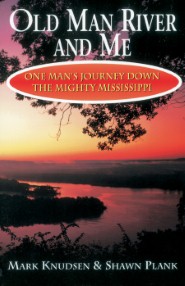When Winter Olympics triumph inevitably falls flat
Watching the Winter Olympics on television is supposed to make me feel a deep sense of joy and pride about the accomplishment of the human spirit. But I can’t help from being depressed.
There is so much defeat in the games. I never remember seeing more people lose than at this year’s games in Albertville, France.
I suppose it has to do with me getting older. When I was younger, I reveled in the victory of gold medalists and frankly, didn’t think much of the numerous competitors who didn’t win. Now that I’m older, I may be more sensitive to the emotions of all competitors.
But it could be CBS’s coverage of the Olympics that makes me more aware of the losers. Before showing athletes taking to the snow or ice in the event of their lifetime, the network airs personality features telling us about the Olympians’ lives, dreams and single-minded devotion to the winter games. We get to know the Olympians like friends and we root them on to victory.
“Sved Zhamarinkslope of the tiny mountainous nation of Waytoocoldland,” begins a typical report, “has overcome obstacles larger than the rugged, icy mountains of his homeland on the road to the figure skating competition in Albertville.”
“There is nothing I want more in life than to skate in the Olympics and bring the gold medal back to Waytoocoldland,” Sved says.
“Skating has come naturally for Sved,” the report continues. “It is the way most Waytoocoldlanders get around the tiny nation, which is perpetually covered in a glaze of ice.
“But while skating has been easy for Sved, his life hasn’t. When Sved was 5, his family, fed up with Waytoocoldland’s bleak climate, moved to Miami. But Sved chose to stay behind, because even at such a tender age, he sensed his future.
“He’s practiced for the Olympics virtually non-stop since, supporting himself with odd jobs, which he admits did not raise the money needed to send him to the games.
“At one point, Sved turned to livestock farming at his mountainside home. But the cattle he attempted to raise kept slipping off the rugged, icy mountains.
“Finally, patriotic Waytoocoldlanders agreed to help send him to the Olympics to capture his and the nation’s dream. They bought him a one-way ticket to Albertville.”
“They will buy me a ticket home if I win the gold medal,” Sved said.
The report is over. The television picture now shows Sved skating to the center of the ice. He strikes his starting pose and looks determinedly at the crowd. There is a sense of joy on his face — he is finally at the Olympics. A close-up shows a tear coming out of one eye. The music begins. He makes his first motion forward. Suddenly, something is wrong.
“He’s fallen down!” the television commentator says. “It appears his skates have locked together and he’s now wriggling around on the ice, unable to get up! The judges will take a half-point off for artistic merit for that. He knows he’s out of contention for a medal now.”
The commentator’s partner interrupts, asking: “How hard is it to make up for a mistake like that through the rest of the program?”
“It takes a lot out of your performance for most skaters,” the commentator says. “It appears to be having a big impact on Sved since he is still lying on his back trying to kick his skates free. It’s going to be very difficult from that position to get up enough speed to do his triple axels.”
It is gut-wrenching to watch. I have to turn away.
This seems to be happening over and over as I watch the Olympics. We befriend a talented athlete through television’s magic. Then with one slip and fall on inherently slippery snow or ice he loses, dashing his hopes of a lifetime. How depressing. It doesn’t seem fair.
Perhaps in 1994, the Winter Olympics can introduce a new sport that can accommodate these mistakes: “Nordic Freestyle Falling Down on Ice.”
It would rank right up there with other current Olympic sports like the biathlon, which combines the intrinsically related skills of cross-country skiing and target shooting.
At least it wouldn’t be any sillier.




 Friday, December 31, 1999 at 7:01 PM
Friday, December 31, 1999 at 7:01 PM